“As Children of New York, None of Us Will Ever Forget”
Summer intern Rebecca Ojserkis ’12 reached out to Amherst students from New York City and asked them to share their memories of 9/11. Below are edited versions of their written responses.
Chloe Fico ’13
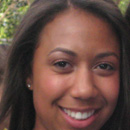
I was taken home with my sister and a family friend who lived in Brooklyn [whose] parents couldn’t pick her up. I live across from a hospital, and I remember, before going up in[to] my building, hundreds of people getting off city buses covered in dust and blood entering the hospital. I wasn’t really aware of anything while at home, and I just remember my sister, my friend and me coloring and being kept occupied. That night, I slept in my parents’ bed.
I wasn’t affected greatly, personally. My dad’s store was below 14th Street, and anyone going below 14th had to show ID. There were police everywhere, but despite this, I felt less safe. Everyone seemed to be confused, I heard talk of moving out of the city [from] a lot of people. A lot of hatred, a lot of sadness. It was a pretty terrible time, at first, in the city. But then, I remember, something changed, and everyone got really strong, and a real sense of camaraderie was felt by all New Yorkers.
I don’t know if it has influenced me in a direct way, but I definitely experienced a tragedy at a young age that had to take some innocence from me, in a way. I think I’m less trusting of people now. If someone is acting in the slightest way weird, I assume the worst. Or any bag left alone in the subway is definitely a bomb or whatnot. I have to watch out for my safety more. I’ve learned there are people who will not like me because I am an American, which is a weird concept to understand as a child.
Justin Ramos ’13
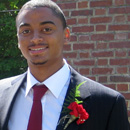
When I got home that afternoon, I watched the replays over and over. Those images are still engraved in my mind, and [they kept] me up for a while that night. Before falling asleep, I asked my mom, “Are they going to come back?” Unsure of who exactly “they” were and whether more attacks would follow, she did her best to ease my worries and said, “No, baby—there are no planes in the air tonight. No one in the U.S. is flying.”
Since I live in Queens, I often see planes coming and going from JFK. But after 9/11, the roar of the engines seemed louder than ever and every plane seemed to be too low. If I was outside with my friends, we would stop playing and watch the plane to make sure it passed by safely. For a long time, the sight of planes triggered memories of that day.
The silver lining in this tragedy was that I’ve never seen New Yorkers come together in such unison. Though I was young, I remember how everyone in New York seemed to be kinder to one another. It was as if we were coping with this event together. The owner of the deli who always gave you a hard time was now the same person who may ask how you were doing. Many people were forced to leave Manhattan on foot, since there was no mass transit, and complete strangers supported one another and offered rides. My mom later told me that there were mounds of water and supplies piled up near Ground Zero for the first responders. New York City had a surplus of donated blood for the first time in a long time. New York is a place where it is easy to be a face in the crowd, but after 9/11, it was as if we were part of a tight-knit community.
I feel [that] the attacks sped up my childhood. Months after 9/11, when the U.S. bombed Iraq, my classmates and I celebrated the invasion. We did not know what we were celebrating, but the fact that we were attacking someone else vindicated our frustration. One of my good friends was Middle Eastern, and he was not ecstatic about the invasion. I asked him why, and he said, “They are attacking my brothers.” We got into an argument, and it took me a few years to understand the difficulty of his position as an American Arab. There comes a point in every child’s life when you realize your parents aren’t perfect. Much like that moment, this was when I realized America was vulnerable. I learned that though we are a great nation, we are still susceptible [to] hatred from other countries and racial tensions within our borders.
Liya Person-Rechtman ’14
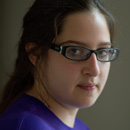
Around lunchtime, my parents and younger brother came to pick me up. They were wearing construction-worker dust masks and handed me one before I left the building. The streets were crowded with fire trucks and ambulances desperately fighting their way into Manhattan. More notably, the air was filled with smoke, ash and paper—office paper: memos, manuscripts, checks and handwritten notes. The wind had swept it all over the river and into Brooklyn.
We had just arrived home, the weekend before, from Israel, where the war … was waging on. We had barely left my grandparents’ house during our whole visit out of fear of roadside bombers and Qassam rockets. So when my brother, then 6, took my mother’s hand and asked her “Is this a war?” he meant it. My mother, unaware at the time of how much significance would later be imbued in her casual reassurance, responded, “No, sweetie, it’s not a war. This is America. We’re back home, remember?”
The following weeks were filled with the same confusion. Many of my friends who lived in Lower Manhattan had to relocate quickly. My family sent boxes of clothing to other families from school who couldn’t get back into their apartments. My mother, as a rabbi, spent that week in the hospital, acting [as] a chaplain to survivors. My grandparents watched the footage incessantly on television. That whole day, they played the images of the planes hitting the towers on [a] loop. My brother and I sat, attached to the couch, for hours on end after our parents picked us up from school that day, bewildered.
As children of New York, none of us will ever forget where we were that day. It serves as a reference point, still. We each know someone—a friend, family member, or acquaintance—who was lost that day in the Twin Towers. For the remaining eight years I spent in the city before I came to Amherst, I saw the two parallel searchlights in remembrance of that day. For years I would avoid the Ground Zero area on my trips through the city. Now that I have left Brooklyn, I find [that] my memories of that day still influence my understanding of New York City expats.
Crysta Song ’14
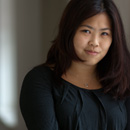
Rina Vernovskaya ’12
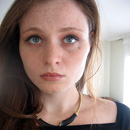
Shortly after lunch, an announcement was made that I couldn’t really understand—the adults, at the time, were also confused, and it was impossible to really get a clear grasp on the situation.
School was let out early, and it wasn’t until I had gotten home and my father explained to me what had happened that I understood. The news was broadcast sporadically; my family didn’t have cable yet, and the antennae [on the World Trade Center's north tower that were used for the broadcast of almost all of New York City's local] television were destroyed. It took a while for television to really get up and running again. I remember our whole family was gathered for a long time without saying anything, just watching the news which was broadcast from one station.
My father was supposed to have gone to Manhattan that afternoon, and we had received mail from the North Tower that very morning. (The postage is marked 9/11.) A few of our family friends and my brother’s friends also went to Stuyvesant High School, which is located downtown. We were worried about one friend in particular who didn’t have a cell phone, but he managed to walk home safely among all the chaos.
For the next three days, my family and I didn’t really talk too much about anything else. We were all worried about security issues. My father’s business also was hit hard, because a lot of documents were lost and shipments were being delayed and in general it was a complete mess. Thankfully, no one from our family died or was injured, but I believe one of my mother’s coworkers did know someone….
I still remember that week as clearly as I remember yesterday, and [I] probably always will.
The next year, I got admitted to Hunter College High School, and my parents were really worried about letting me go to Manhattan every day because many thought the next terrorist attack would be on the subway. However, other than fear and stress, my family was one of the luckier ones.